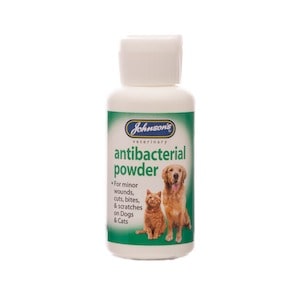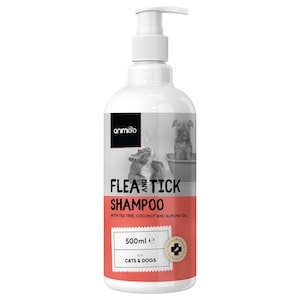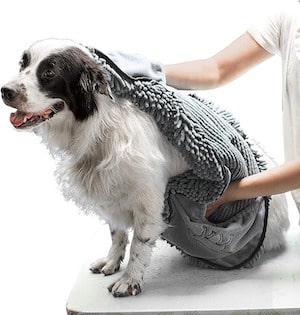Navigate the realm of pet-safe disinfectants as we explore the potential harm Jeyes Fluid may pose to dogs. Discover safer alternatives to ensure your furry companion’s well-being without compromising cleanliness.

Key Takeaways
- Jeyes Fluid may be harmful to dogs, containing substances that pose risks.
- Opt for pet-safe disinfectants like vinegar or specialized pet-friendly products.
- Prioritize your dog’s safety by avoiding potentially hazardous substances in your cleaning routine.
You Might Also Like:
Is Jeyes Fluid Harmful To Dogs?
You should not use Jeyes fluid because it contains chemicals like formic acid and Dimethyl Benzyl Ammonium Chloride. This chemical can cause some serious health issues in dogs if they come in contact with them or ingest it.
The active ingredient in Jeyes fluid is cresylic acid and it’s toxic for dogs. This substance can cause some serious gastrointestinal issues and also damage the liver of your furry friend. Thus, if you have a doubt whether or not they have licked the solution you must immediately induce vomiting to avoid any health issues.
The substance is toxic and every individual is aware of it. Still, why are we discussing its harmful nature for dogs?
Well, many dog owners think that it’s useful in cleaning the dog’s skin.
So, if you gave a thought to using this disinfectant for washing your dog’s fur then you must immediately stop thinking about it. The chemical is used outdoors and you must totally avoid using it on your dog’s skin.
Health issues after Jeyes fluid ingestion
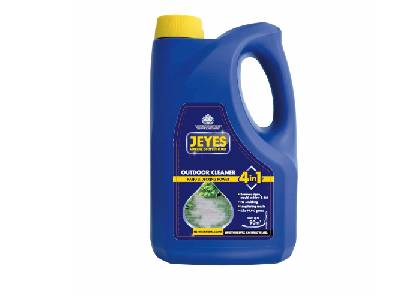
Now, if your dog accidentally ingests this disinfectant it is quite dangerous. Following are some of the points highlighting the issues pertaining to dogs’ health:
- It contains chlorine which is highly toxic for dogs. On ingestion, the chemical can cause severe health issues like diarrhoea, vomiting, and dehydration. If the quantity is more, it may even damage the organ.
- The presence of dimethyl benzyl ammonium chloride and formic acid can lead to issues such as an irritated stomach, cause damage to the red blood cells, and also have a negative impact on the nervous system.
Effects of Jeyes Fluid when the Dog is in contact
Ingestion of this disinfectant is harmful but, you must also make sure that there is minimal contact as well. This means you should not let your furry friend anywhere near the fluid. Here are a few reasons explaining why:
- On contact, the fluid can cause skin burns and irritation in dogs, especially if the substance is in contact with the wound. This is worst and along with the irritation, the healing of that wound is also hindered because of the fluid contact and there is a risk of infection as well.
- If your furry friend gets close to the fluid and makes contact with their eyes or mucous membranes, they will have eye irritation. There will be lots of pain, swelling, and redness around the area and sometimes they may even get blind.
- Jeyes fluid on contact with a dog’s skin or coat can alter its pH balance. This imbalance can cause itching, dryness, and infection in their skin or coat. In addition, the fluid also eliminates the natural oils that are present in their skin and this weakens their protective layer, as these oils safeguard the dogs from environmental factors.
Using Jeyes Fluid For Dogs
Don’t get excited yet, you can use Jeyes fluid for dogs but, only if it’s diluted. The one with the original composition of different chemical components must be completely avoided. So, to understand why the diluted Jeyes fluid is usable, let’s have a small comparison between the non-diluted and the diluted Jeyes fluid using different parameters.
- pH range
Non-diluted Jeyes fluid has a pH range of 8-10. This means it’s relatively alkaline. The diluted Jeyes fluid has a lower pH in comparison with the diluted one. So, it’s closer to being neutral instead of being alkaline. Further, the pH of the diluted fluid relies on the amount of water that is added to the non-diluted fluid.
- Concentration of chemicals
The concentration of the chemicals in the non-diluted Jeyes fluid is high. For instance, the fluid retains about 5-10% of p-chloro-m-cresol and alkylphenols, 2.5-5% of terpineol, and 1-2.5% of isopropyl alcohol. This distribution is less in the diluted fluid because it contains 10 parts water and hence the concentration of these chemicals is 10 times less.
- Ingredients distribution
The ingredient distribution for the non-diluted solution includes lactic acid, decyl octyl glycosides, oligomeric, and D-Glucopyranose. Whereas the diluted Jeyes fluid will not contain these ingredients but, more water.
Using diluted Jeyes fluid on dogs
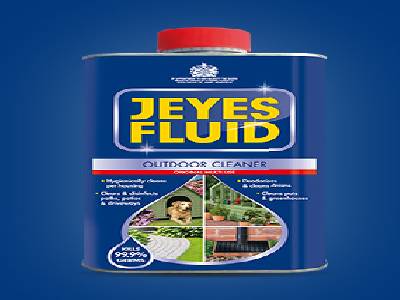
The non-diluted fluid may seem non-toxic or less harmful but, you must carefully use it. Yes, the concentration of different chemicals is significantly less but, if ingested by your furry friend, can surely cause some health issues. So, here is how you can use it for the dog:
- Mix one part of Jeyes fluid with 10 parts of water in a bucket or a spray bottle.
- Use the spray bottle or simply wipe the solution on the region of the skin or coat you wish to clean. Avoid applying the solution near their eyes, nose or mouth.
- Once you apply the solution wait for a minimum of 10 minutes before rinsing it with the water.
If the condition of the fur is getting better you can repeat the process otherwise you must halt the usage of this solution. Interestingly, the diluted solution is also helpful in killing the bacteria and fungi which makes this a viable option for dealing with wounds, hot spots, and minor infections as well.
As mentioned earlier, the diluted solution of Jeyes fluid is not harmful but, can pose some health issues. So, you must consult a vet before and after using the fluid. Because if there is a risk of infection or an underlying medical condition, the vet may suggest you avoid using the fluid at all.
Still, if you have used the solution, you must look for the following signs or symptoms in your furry friend:
- Skin-related signs and symptoms: redness swelling, itching, or blistering
- Health-related symptoms: vomiting, loss of appetite, diarrhoea, weakness, trembling, hypothermia, low blood pressure, coughing, breathing difficulties, or wheezing.
Alternative Disinfectant for dogs
In general, disinfectants are not good for dogs because they are for cleaning and outdoor purposes only. Still, there are some dog-safe disinfectants you can use if you have to. These are:
- AHP (Accelerated Hydrogen Peroxide) – this disinfectant is pet safe and non-toxic. It retains surfactant compounds that act as detergents and foaming agents. This solution is stable in comparison with traditional hydrogen peroxide and kills viruses, bacteria, and fungi.
- SupaClean – is a heavy-duty pet-safe disinfectant that is useful in cleaning dog utensils and other areas. It contains quaternary ammonia compounds that easily kill fungi, bacteria, and viruses. This solution doesn’t leave residue and has a good fragrance as well.
- KennelSol – this solution is pet-safe and specifically designed for use in crates and kennels. It is pH neutral and non-toxic. It can kill a wide range of viruses, bacteria fungi, and pathogens. In addition, it has a fresh scent and doesn’t corrode on metal surfaces.
You may have observed one thing about these alternatives, they are mainly useful for cleaning up the surfaces where your furry friend resides. This means you cannot use it for clearing out germs from their coat or other regions of their body.
However, plant-based products are your safest bet to avoid any health complications that may occur while using any disinfectant i.e. diluted or non-diluted. They are biodegradable and pose no harm to our furry friends. You can use natural elements such as lemon juice, vinegar, and baking soda instead of disinfectants.
Precautionary Measures To Consider While Using Jeyes Fluid
Regardless of the intent, if you are using Jeyes Fluid, you must take some precautionary measures to ensure your dog doesn’t ingest or come in contact with the fluid. Here are some of the points you can consider:
- Store the fluid in a closed container. In fact, lock the container in a room or put it on a high shelf to reduce the chances of your furry friend getting close to the substance.
- Avoid leaving the Jeyes fluid out in the open, especially in close proximity to your dog. The smell may lure them towards it and they may end up ingesting it.
- If you clean your backyard, you must ensure that you are not sprinkling this on the plants, food crops or flowers that your furry friend licks or eats. Likewise, you should avoid using this liquid on surfaces where your dog is often chewing or licking.
- While cleaning your house with the Jeyes fluid, avoid sprinkling near the area where your dog stuffs their toys or plays with them. Also, you must see that there is no presence of this fluid in their sleep area.
- You must wash your hands after you use the fluid. In fact, use gloves while using because the slightest presence of the fluid may cause issues for your furry friend while you play with them.
- Dispose of the empty containers because if you throw them into the trash, chances are your furry friend may grab or lick on them thinking of them as something to eat.
- Follow the instructions that are mentioned on the pack and dilute, apply, and rinse the fluid accordingly.
Now, even if you manage to take these precautionary measures, sometimes it’s possible that your dog may still end up ingesting the fluid or coming in contact with it. If you suspect that your furry friend may have ingested it, you can immediately call on the ASPCA Animal Poison Control (888) 426-4435 helpline for ensuring your dog’s safety.
FAQs
Is Jeyes Fluid harmful to a dog’s paws?
Jeyes fluid is harmful to your dog only if they ingest it or come in close contact with it. This is because of the chemicals that are present in the solution. The fluid has chlorine, formic acid, and limonene in them and these substances can make the dog sick or damage their organs, irritate the skin and cause lung issues.
What is the worst-case scenario for a dog ingesting Jeyes fluid?
In general, if you take your dog immediately to the vet for examination after a possible ingestion of the fluid they will recover. However, in the worst-case scenario, Jeyes fluid ingestion can kill your dog. This happens when they have ingested excessive amounts of the fluid and the Dimethyl Benzyl Ammonium Chloride will damage their skin, liver, and lungs. Your dog may die because of the organ failure.
Are dogs allergic to Jeyes Fluid?
Jeyes fluid is not allergic to dogs but, surely leads to some serious health problems. The composition of different chemicals adversely affects them. If ingested can cause vomiting, tummy issues and so on, and if used on fur may cause irritation. So, even if they are not allergic, you must avoid using it on them.
Is it OK to use Jeyes fluid on dogs?
It’s a big no. You should not use Jeyes fluid on dogs. They are solely for outdoor use and if you use them on your dog they will make your dog sick, cause irritation in their skin and lead to other health issues. Use natural elements or shampoo at best to clean up their furry body.
Final Remarks
So, is Jeyes fluid harmful to dogs – yes, it is. And if you are thinking of using it for cleaning your dog or even their crate or another place where they spend their time, you must reconsider. Because contrary to the common opinion of the fluid not having any severe impact on their health, throughout the course of the article we saw different risks involved in using this disinfectant.
The presence of Dimethyl Benzyl Ammonium Chloride and limonene can lead to poisoning, liver or lung damage not to forget skin irritation. If your dog manages to ingest in large amounts, they may even die.
Yes, you can use diluted Jeyes solution but, that too can cause some health issues for your furry friend. So, use natural elements for cleaning purposes or even for dog fur. Try a mix of diluted white vinegar solution and water.
